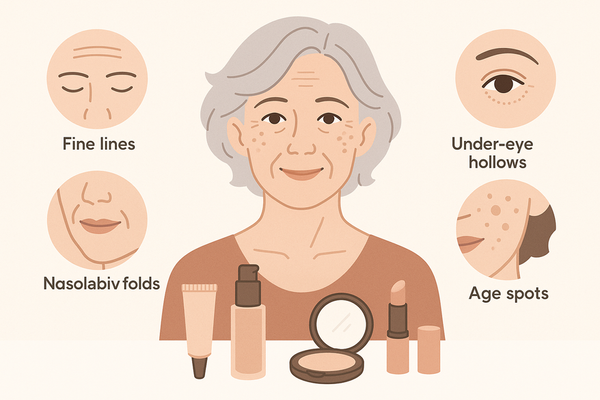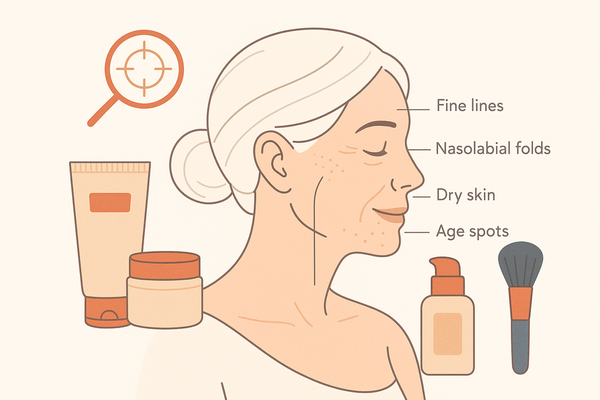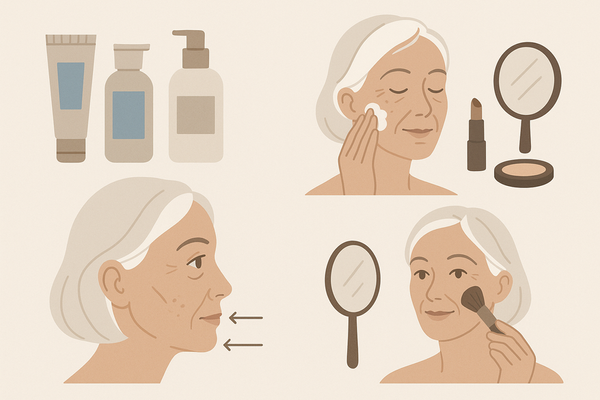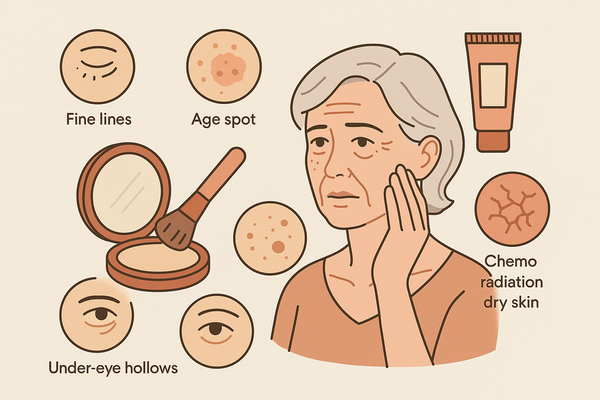Integrating New Skincare Biotechnologies in Makeup: The Future of Hybrid Beauty
Explore integrating new skincare biotechnologies in makeup and discover how lab-grown ingredients are reshaping the beauty industry with hybrid products.
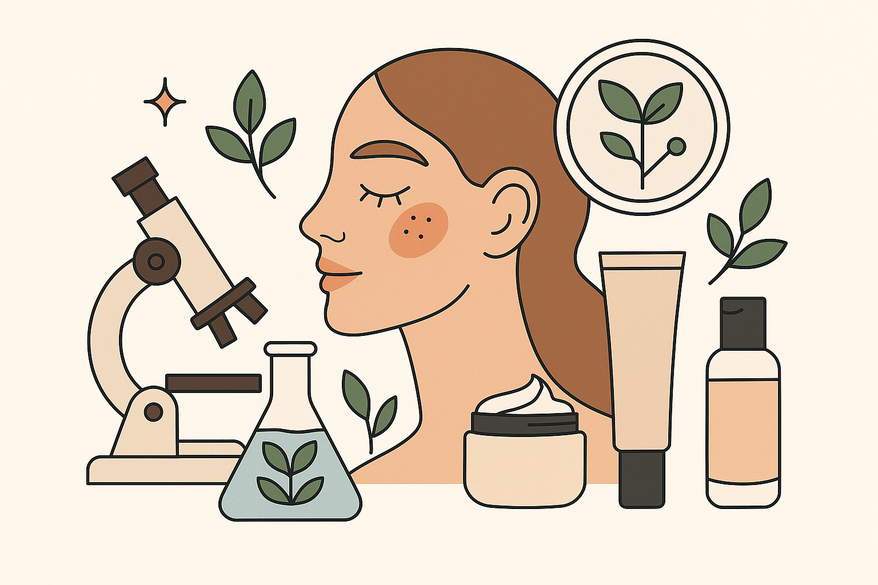
Estimated reading time: 8 minutes
Key Takeaways
- Skincare biotechnologies leverage controlled fermentation, genetic engineering, and cellular cultivation to create potent, traceable, and sustainable actives.
- Hybrid beauty products fuse makeup coverage with biotech-powered skincare for multifunctional benefits.
- Consumers gain improved skin health, personalization, and environmental transparency from multifunctional makeup.
- Industry innovations include AI-driven personalization, nano-encapsulation, and biofabricated pigments.
- Challenges such as regulatory approval, consumer trust, and production costs must be addressed for widespread adoption.
Table of Contents
- Section 1: Defining Skincare Biotechnologies
- Section 2: Skincare-Makeup Hybrids and Hybrid Beauty Products
- Section 3: Benefits and Consumer Impact of Multifunctional Makeup
- Section 4: Industry Innovations and Research in Integrating New Skincare Biotechnologies in Makeup
- Section 5: Future of Biotech Makeup: Trends and Challenges
- Conclusion
- FAQ
Section 1: Defining Skincare Biotechnologies
Skincare biotechnologies are ingredients produced via biological systems—such as controlled fermentation, genetic engineering, or cellular cultivation—to yield lab-grown actives. Unlike traditional extracts harvested from plants or minerals, these lab-produced compounds offer enhanced purity, potency, and consistency.
Core science behind biotech routes:
- Controlled fermentation for high-purity hyaluronic acid: microbes generate uniform, highly absorbable chains.
- Genetic engineering to enhance natural peptides: engineered yeast or bacteria yield peptides matching or outperforming plant-derived ones.
- Cellular cultivation for sustainable collagen and elastin: plant or animal cells grow in labs, avoiding large-scale farming.
Benefits:
- Traceability: full transparency from microbe to bottle.
- Consistency: identical potency and purity across batches.
- Reduced environmental impact: lower land, water, and chemical use.
Sources: biotechnology in beauty product trends, luxury beauty trends 2025.
Section 2: Skincare-Makeup Hybrids and Hybrid Beauty Products
Hybrid beauty formulas blend coverage with biotech skincare, meeting the demand for complexion-enhancing products that also nourish. These multifunctional cosmetics deliver color, hydration, and active repair in one step.
Flagship biotech-infused makeup trends:
- Lab-grown hyaluronic acid foundations for sustained 12+ hour hydration.
- Exosome serums in tinted moisturizers for regeneration and anti-inflammation.
- Epidermal Growth Factor (EGF) in primers to boost collagen synthesis under pigments.
- Blue-light blockers in BB creams using nano zinc and biotech antioxidants to shield against digital oxidative stress.
Formulation challenges:
- Stability of living actives in pigment-rich matrices.
- pH balancing to maintain peptide activity.
- Compatible preservatives to prevent spoilage.
Sources: future of beauty 2025, US beauty trends 2025, beauty trends.
Section 3: Benefits and Consumer Impact of Multifunctional Makeup
By integrating new skincare biotechnologies in makeup, brands offer products that not only cover imperfections but also improve skin health over time.
- Active repair and anti-aging: exosomes and EGF heal micro-tears and boost elasticity under color.
- One-step ritual: fusion of coverage, hydration, UV defense, and repair.
- Sustainability and transparency: lab-grown ingredients reduce carbon footprint and clarify sourcing.
Consumer pain points addressed:
- Irritation soothed by biofermented botanicals.
- Barrier dysfunction healed with targeted peptides.
- Pollution damage neutralized by built-in antioxidants.
- Blue-light exposure shielded during screen use.
Personalization trends:
- DNA-based shade and formula matching for bespoke blends.
- Environment-responsive makeup adjusting hydration or oil control via local humidity sensors.
Sources: biotechnology in beauty product trends, future of beauty 2025, luxury beauty trends 2025.
Section 4: Industry Innovations and Research in Integrating New Skincare Biotechnologies in Makeup
Leading labs and brands are pioneering scalable biotech cosmetics through case studies and research breakthroughs.
Case studies:
- Brand A’s tinted primer with lab-grown peptides shows visible wrinkle reduction in four weeks.
- Brand B’s AI-driven skin diagnostics craft personalized foundation blends at global kiosks.
- Brand C’s exosome-infused concealer is under clinical evaluation for scar fading.
Recent research:
- Biofermented actives outperform plant extracts by 20% in hydration tests.
- Exosome-based cosmetics exhibit low allergen potential under GMP purification.
Regulatory landscape:
- FDA classifies most biotech ingredients as cosmetic additives, with extra safety dossiers for novel biologics.
- EMA guidelines emphasize traceability and purity for cellular-derived compounds.
Sources: luxury beauty trends 2025, beauty trends.
Section 5: Future of Biotech Makeup: Trends and Challenges
The horizon of biotech makeup shines bright, but several hurdles must be cleared for mass adoption.
Top 3 future trends:
- Hyper-personalization via genetic and biometric profiling with at-home DNA swabs.
- Nano-encapsulation for controlled release of peptides to deep skin layers.
- Biofabricated color pigments like lab-grown melanin replacing synthetic dyes.
Key challenges:
- Regulatory approvals for biologically derived actives delaying global rollouts.
- Building consumer trust around “lab-grown” labels through education.
- Reducing costs and scaling biotech processes to achieve affordable price points.
Sources: beauty trends, future of beauty 2025, biotechnology in beauty product trends.
Conclusion
Integrating new skincare biotechnologies in makeup is redefining beauty by marrying aesthetic appeal with therapeutic value. Advances in biofermentation, genetic engineering, and cellular cultivation drive a new era of hybrid beauty. As products evolve, expect more personalized, multifunctional, and sustainable solutions. Stay tuned for the next wave of science-driven cosmetics.
For personalized guidance on combining skincare and makeup, apps such as Makeup Check AI analyze your skin in real time and recommend biotech-infused routines.

FAQ
- What are skincare biotechnologies? Lab-produced actives created through fermentation, genetic engineering, or cell culture to enhance potency and sustainability.
- How do hybrid beauty products work? They combine makeup coverage with biotech skincare actives to provide both aesthetic and therapeutic benefits.
- Are biotech ingredients safe? Yes, most undergo rigorous GMP purification and safety assessments, often outperforming plant extracts in efficacy tests.
- When will personalized biotech makeup be available? Early adopters exist now, and wide availability is expected as AI diagnostics and scalable biotech processes advance.

